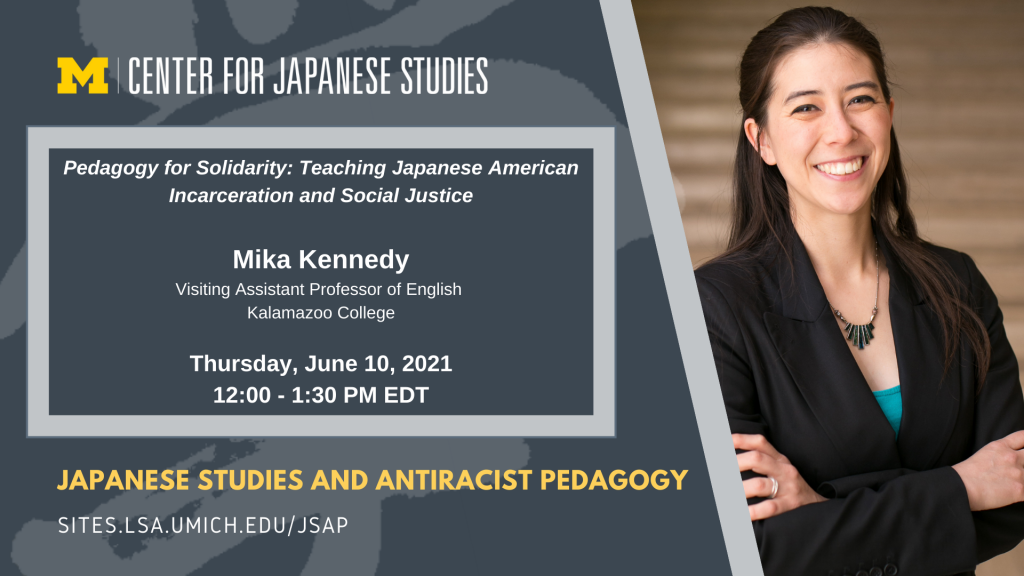This webinar will focus on the “pedagogy” part of the series title, “Japanese Studies Antiracist Pedagogy.” I invite us to think together about what antiracist course design entails, and how it can–and must–be baked into a course at every level, from its learning goals and structures to assignments, discussions, readings, and classroom policies. I will draw from my experiences teaching at a small U.S. Midwestern liberal arts college, for a 100-level course titled “Reading the World: Social Justice,” my version of which is themed around narratives of Japanese American incarceration during World War II. The course explores these narratives as an active and enduring presence in the lives and politics of the present–in the United States, at its borders, and beyond them. My students and I consider Japanese American incarceration in conversation with Indigenous sovereignty and settler colonialism; the incarceration of Japanese Latin Americans; present-day activism around migrant detention at the U.S.-Mexico border; and the ongoing work of redress and repair with respect to structural/interpersonal racism and antiblackness in the United States.
I will discuss the writing and discussion prompts I use to engage students across different levels of familiarity with literary analysis/Japanese American studies/social justice, as well as my errors and successes in developing a classroom community that strives to be antiracist in its daily praxis; emphasizes experimentation over mastery; and scaffolds opportunities for students to bring the world into the classroom, and their learning into the world. The heart of this webinar is not mine alone: Several of my students have volunteered their experiments and reflections so that, as teachers and learners, we can see what the theory behind an antiracist syllabus creates in practice–what messy realities we might anticipate as part of the learning process, and how the seeds of a syllabus can be nurtured and extended through students’ challenges, amendments, and additions.
View the Webinar Recording here


